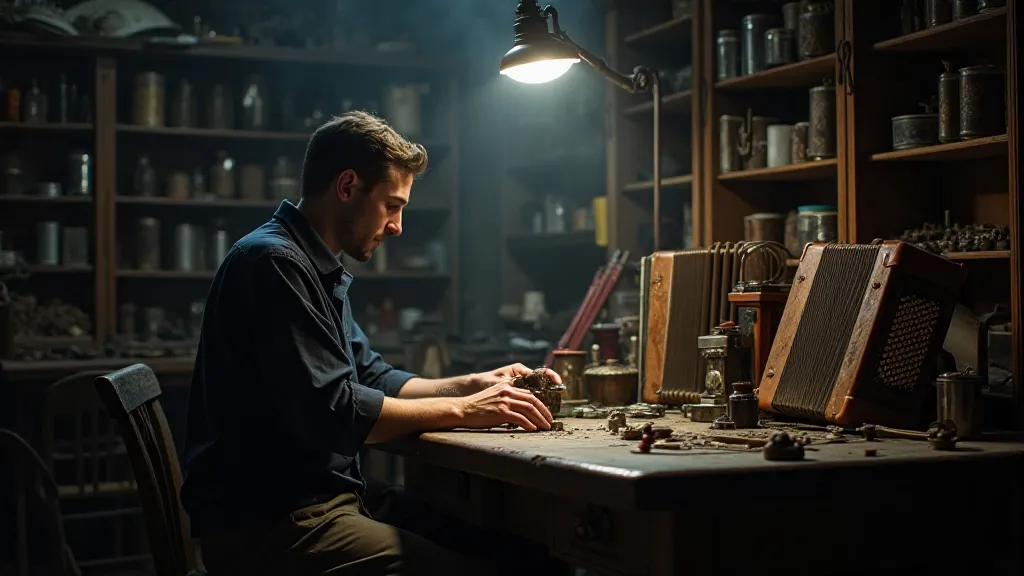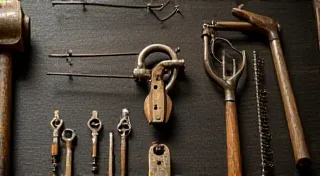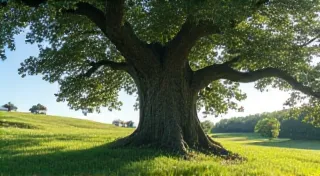Echoes of the Vault: The Legacy of Observance in Unlocking Potential
The scent of oiled wood and aged leather. The satisfying weight of brass in your hand. These aren’s the hallmarks of a simple hobby; they’re echoes of a past steeped in meticulous craftsmanship and a deep understanding of intricate mechanisms. I’m not speaking of lock picking – though the principles are undeniably intertwined – but of antique accordions. My grandfather, a quiet, observant man who built radios from scrap metal and kept a pocket knife perpetually sharpened, introduced me to both. He’s the one who first taught me to truly *see*.
He's gone now, but I still remember the first accordion he showed me. It was a Hohner, its bellows scarred with years of use, its keys yellowed with age. He didn’t speak of its musical value initially. Instead, he showed me the inner workings – the meticulously crafted reed blocks, the complex lever system that controlled the airflow, the tiny screws holding it all together. He pointed out the subtle variations in the wood grain, the precise placement of each component, the elegance of its design. "Everything tells a story," he's said, a twinkle in his eye, "if you just know how to look." It wasn’t just about the music; it was about the ingenuity, the sheer dedication required to create something so complex and so beautiful.
That early lesson, focused on the humble accordion, unexpectedly laid the foundation for an appreciation I would later find within the world of security and, specifically, lock picking. The core principle is the same: true mastery doesn't come from brute force, but from a profound understanding of the system itself. Think of the accordionist, not hammering away at the keys, but listening intently, feeling the subtle shifts in pressure, anticipating the next note. Similarly, the skilled lock picker doesn’t simply try to force a lock open; they listen to the faint clicks, feel the tiny movements, understand the delicate dance of tumblers within.
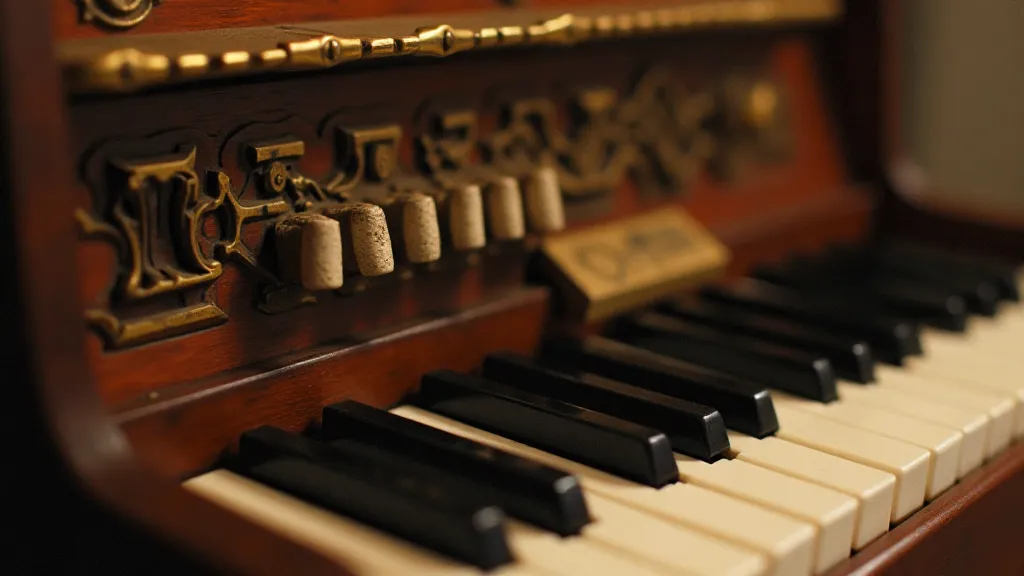
The Dance of Tumblers: More Than Just Force
Most people associate security with robust locks and elaborate alarm systems. They assume that a lock’s strength lies solely in its physical resistance. While a strong lock certainly has its place, the reality is far more nuanced. The beauty—and vulnerability—of a mechanical lock isn’t its ability to withstand sheer force; it’s in its complex interaction of precisely engineered parts. A single, slightly misaligned tumbler can be the difference between impenetrable security and a surprisingly easy bypass.
Lock picking, at its purest, isn’t about “breaking” something. It’s about understanding it. It’s a conversation between the picker and the lock, a delicate probing of its internal logic. It requires a level of patience and observation that transcends simple skill; it demands a near-Zen focus. The faintest friction, the subtle click of a tumbler setting, the almost imperceptible shift in tension – these are the clues that reveal the lock’s secrets. It’s akin to diagnosing a complex engine problem – you’ve got to listen carefully, feel for anomalies, and trace the problem back to its source.
My grandfather used to say, "A true craftsman doesn't fight the material; he works *with* it." This philosophy applies equally well to both accordions and locks. Forcing an accordion bellows back into place will damage it; so too, attempting to force a lock open will only result in a broken mechanism. The key is to understand the natural movement, the inherent tension, and the points of resistance.
Beyond the Tools: Cultivating Observance
The tools themselves—the tension wrench, the picks—are relatively simple. The real complexity lies in the mind of the user. It’s not about wielding a sophisticated array of equipment; it's about the ability to translate subtle sensory input into actionable knowledge. This ability isn't exclusive to lock picking or accordion restoration; it's a universal skill, applicable to nearly every aspect of life.
Think about a musician practicing a difficult passage. They don’t simply play through it repeatedly, hoping for improvement. They analyze the fingering, the rhythm, the dynamics, and the subtle nuances of each note. Similarly, a surgeon doesn't simply perform an operation; they meticulously study the anatomy, anticipate potential complications, and adapt their technique to the unique circumstances of each patient. The common thread is a dedication to detailed observation and a willingness to learn from every iteration.
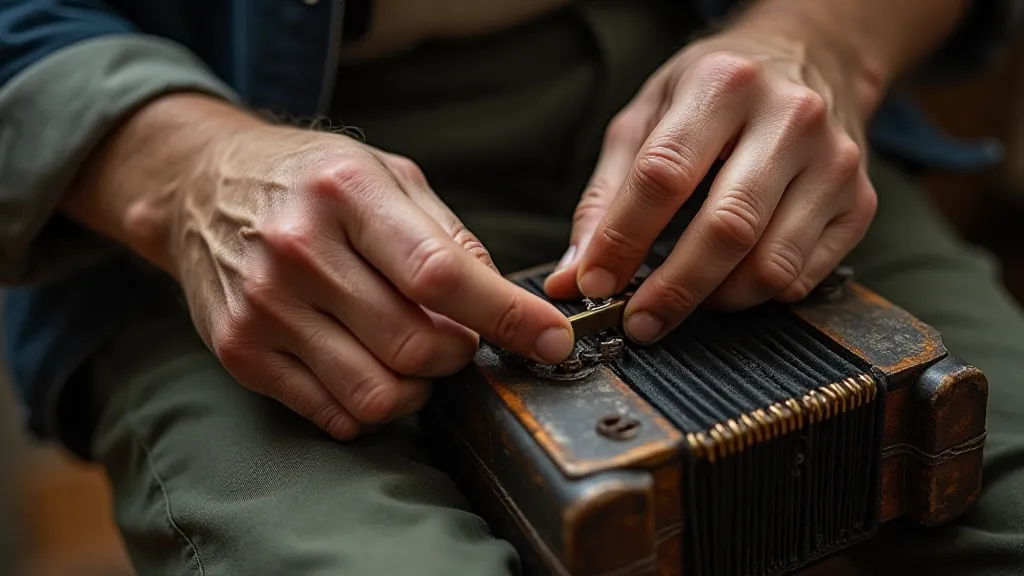
Ethical Considerations & Respect for Craftsmanship
Of course, the acquisition of this observational skill—the ability to “see” the intricacies of a system—must be tempered with ethical considerations. Lock picking, while a fascinating pursuit, is not something to be undertaken lightly. It’s crucial to understand the legal ramifications and to respect the sanctity of security. This article is intended for educational purposes only and should not be interpreted as an endorsement of illegal activity.
The appreciation for intricate systems also extends to a profound respect for the individuals who create them. A poorly maintained accordion or a forcibly opened lock represents a disrespect for the craftsman's skill and dedication. We should strive to understand the time, effort, and precision that goes into creating something of lasting value.
The Ripple Effect: Personal and Professional Growth
The ability to discern subtle nuances – the slight play of a tumbler, the faint clicking of a spring – isn't merely a skill for unlocking physical security. It's a universal competency that fosters keenness of perception, critical thinking, and a profound appreciation for intricate systems. It’s about recognizing the minutiae that unlocks opportunity.
This dedication to mindful detail isn't just about mastering a hobby; it’s about cultivating a way of life. It's about approaching every challenge with curiosity, patience, and a willingness to learn. It's about recognizing that true mastery doesn’t come from brute force, but from a profound understanding of the system itself, whether it’s a lock, an accordion, a business plan, or a human relationship.
My grandfather's lessons, learned amidst the scent of oiled wood and aged leather, continue to resonate with me today. They remind me that the greatest rewards often lie not in the final result, but in the journey of observation, understanding, and respect for the intricate beauty of the world around us.
